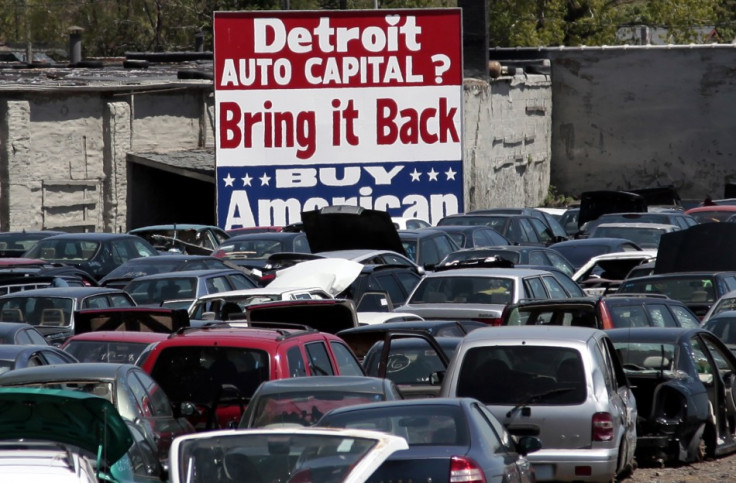Detroit Bankruptcy: Deadline To Object To Bankruptcy Expires

Creditors including pension funds, bondholders and bond insurers have until the end of today to file their objections to Detroit's eligibility for bankruptcy.
Detroit, once America's automotive powerhouse, has become the largest city in US history to file for municipal bankruptcy owing $18.5bn (£12.1bn, €14.1bn) to thousands of creditors.
According to a Reuters report, pension funds representing police, fire personnel and municipal workers are expected to file their objections during the day. In their argument, they will cite a prohibition in the Michigan Constitution against impairing vested retirement benefits for public workers.
Those mutual funds and bond insurers which provided guarantees for a large chunk of Detroit's debt may also argue that the city's voter-approved unlimited-tax general obligation bonds have constitutional and statutory protections in the state.
Earlier this month, Judge Steven Rhodes earmarked 23 October for the start of a trial to hear potential objections to Detroit's eligibility for Chapter 9 bankruptcy protection. Detroit must prove it is insolvent and that it has sincerely attempted to negotiate with its creditors, or that negotiations were not viable owing to a large number of creditors.
If the court does conclude that the city qualifies for bankruptcy, Detroit would have until 1 March 2014 to file a reorganisation plan, according to Judge Rhodes' schedule.
The list of creditors, including present and past workers, spans 3,504 pages. The largest in that pack are two pension funds that have claims worth $3.74bn.
Among the top 20 creditors are bondholders of $1.47bn in certificates of participation (COPs) that the city sold for its pension funds, alongside several hundred million dollars' worth of general obligation bonds, according to the report.
Detroit follows three California cities, Stockton, Mammoth Lakes and San Bernardino, all of which filed for bankruptcy in 2012. In 2011, the city of Harrisburg in Pennsylvania tried to file for bankruptcy but the move was turned down because it was deemed illegal.
The timeframes proposed by Rhodes and Detroit's state-appointed emergency manager, Kevyn Orr, would see the city moving through bankruptcy court more quickly than Stockton.
Stockton listed debts of around $1bn when it filed for bankruptcy protection in June 2012. However, the city took about a year to pass through the eligibility phase alone.
© Copyright IBTimes 2025. All rights reserved.






















